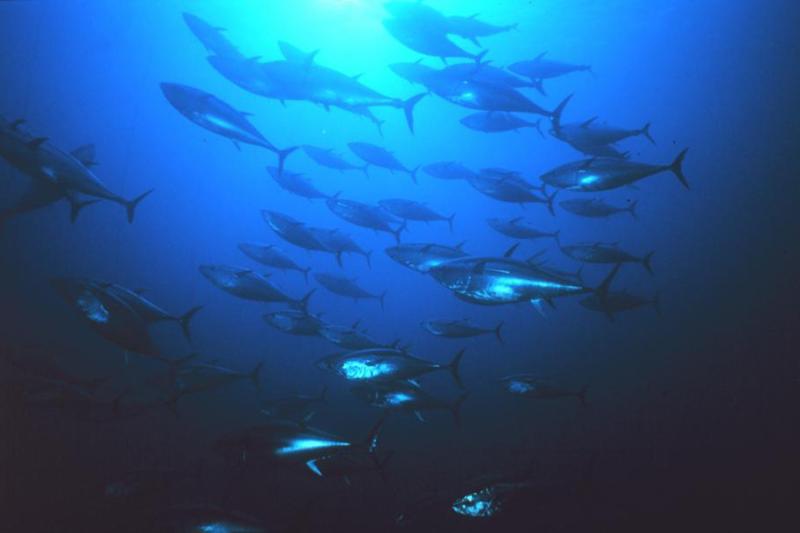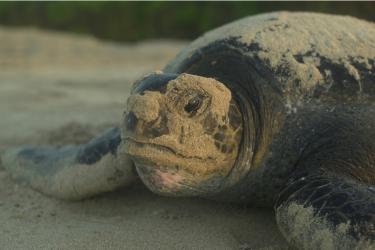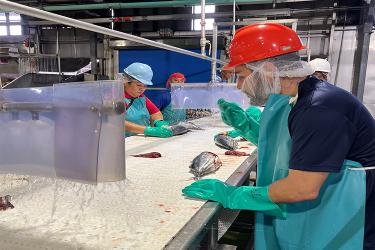The relentless effects of climate change continue to ripple through marine life, ecosystems, and the communities and economies entwined with them. They require strong leadership and international collaboration to confront the challenge. The International Commission for the Conservation of Atlantic Tunas oversees the conservation and management of many Atlantic marine species. It recently convened a forum aimed at addressing this pressing challenge for the species it manages—the first dedicated forum for delving specifically into this issue. It brought together experts on climate change, fisheries management, and science from around the world to collaborate on methods to address this global challenge.
One objective of the forum was to enhance the incorporation of climate information in the Commission’s work. Another was to foster increased collaboration between fisheries managers and its scientific committee, the Standing Committee on Research and Statistics. All 52 members, including the United States, share the Commission’s responsibility for conservation and management of Atlantic marine species, including Atlantic tunas, swordfish, marlins, sailfish, and sharks.
The meeting was—perhaps fittingly—held during the hottest July on record. July’s record-breaking temperatures caught the world’s attention: The temperature of the sea’s surface was so high above average for so long that NASA declared “the ocean has a fever.” In the Atlantic Ocean, including off the coast of the United States, temperatures reached alarmingly high levels. The consequences of these climate change impacts are considerable for Atlantic species. For example, climate change could lead to:
- Changes in the geographic distribution of important Atlantic fish stocks such as albacore tuna
- Decreases in primary production with consequences for fisheries
- Reductions in the amount of suitable habitat for some species managed by ICCAT.
Dr. Kelly Kryc is NOAA’s Deputy Assistant Secretary for International Fisheries, the U.S. Federal Commissioner to ICCAT, and a climate scientist by training. She— was appointed by the Commission to lead this groundbreaking meeting. Kryc underscored the joint approach necessary for nations to respond to the urgent nature of climate change on these species.
Key Insights from the Meeting
The meeting yielded key insights in several critical areas:
Understanding Climate Impact
International experts highlighted the current and anticipated effects of climate change on the world's ocean, specifically species managed by the Commission. They also delved into the diverse range of climate-induced extreme events, such as marine heatwaves, and their far-reaching consequences. They emphasized the urgent need to adapt fisheries conservation and management to reflect evolving conditions.
Promoting Climate-Resilient Fisheries
Participants discussed various strategies and tools to promote climate-resilient fisheries management. These included how enhanced climate modeling data could be better incorporated into the work of the committee and how existing tools could play a role in helping fisheries managers adapt to changing ocean conditions.
Domestic Initiatives
The U.S. delegation was composed of climate and fisheries experts from NOAA Fisheries and other partners. It highlighted domestic efforts aimed at climate-resilient fisheries management in the United States, such as NOAA's Climate, Ecosystems, and Fisheries Initiative and other research tools. The U.S. delegation also highlighted that scenario planning processes, embraced by the U.S. Regional Fishery Management Councils, are assisting in strategic decision-making. They ensure readiness for a spectrum of potential future scenarios in the context of a changing climate.
Plan of Action on Climate Change
Dr. Kryc presented a draft Plan of Action identifying concrete next steps for furthering the crucial work of integrating climate change considerations into the Commission’s research and management actions. The Commission aims to adopt an updated version of the Plan of Action at its Annual Meeting in November. This signals its strong commitment to continue this important work and to take proactive actions to address climate change.
Looking Ahead
ICCAT parties continue to work on revising and adopting the Plan of Action on Climate Change to guide their work on climate change. At its November 2023 annual meeting, the Commission will build on this momentum by reviewing and potentially adopting this plan. Its adoption would signal a strong commitment to managing Atlantic tuna and tuna-like species to ensure their climate resiliency and viability into the future. The Commission is also expected to consider creating a standing climate change working group dedicated to advancing its work to address the threats posed by climate change to these species.
The profound effects of climate change challenge our shared goals of sustainable fisheries management and conservation of protected resources and habitats. This international gathering not only underscored the imperative need for proactive responses to climate change but also showcased strong U.S. leadership and collaboration in confronting an unprecedented environmental challenge of our era. NOAA's expertise and steadfast dedication to addressing the multifaceted issue of climate change played an instrumental role in ensuring a highly successful and critically important forum for the Commission. NOAA is committed to marine conservation and global collaboration in confronting the challenges posed by climate change.



